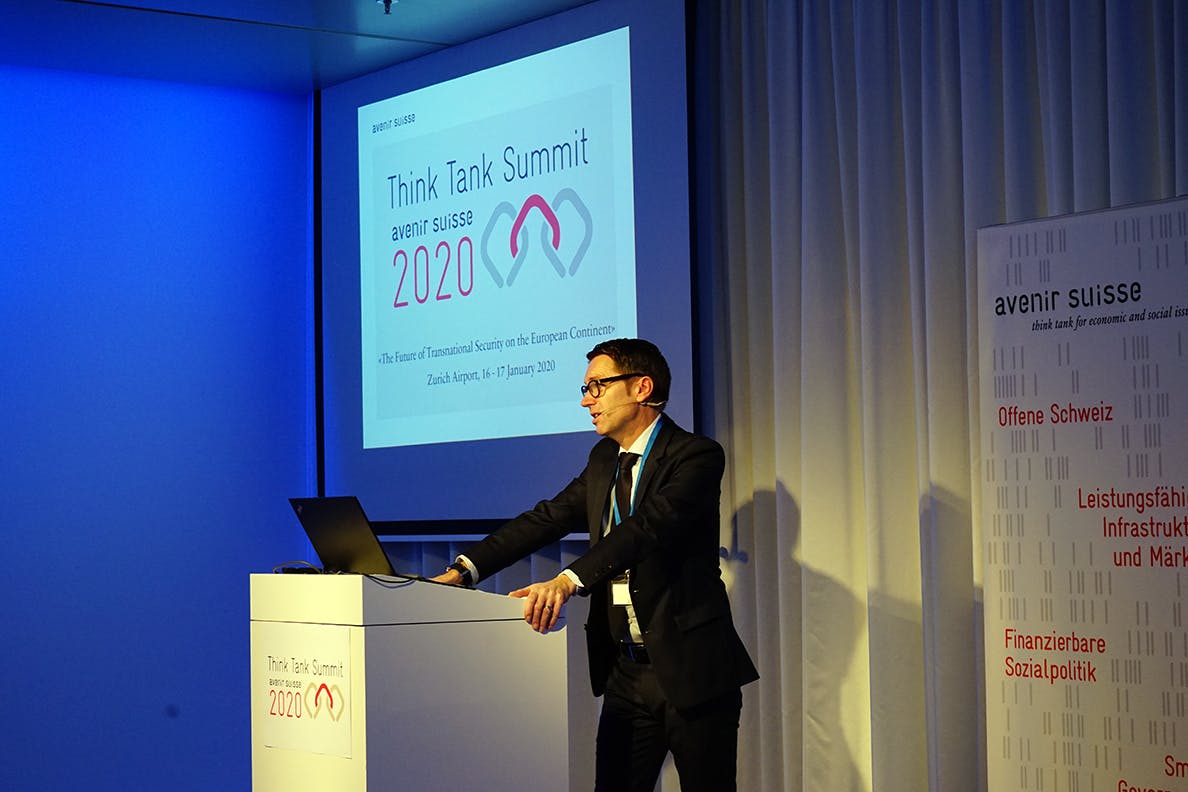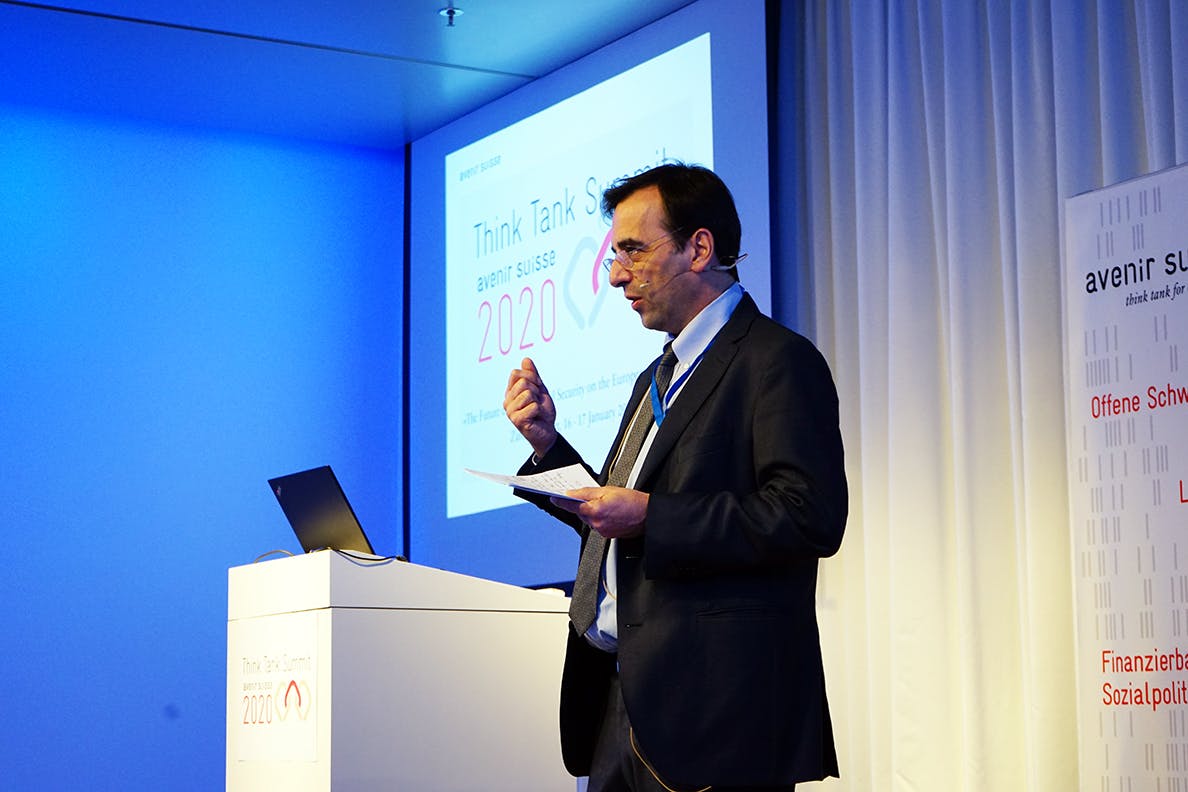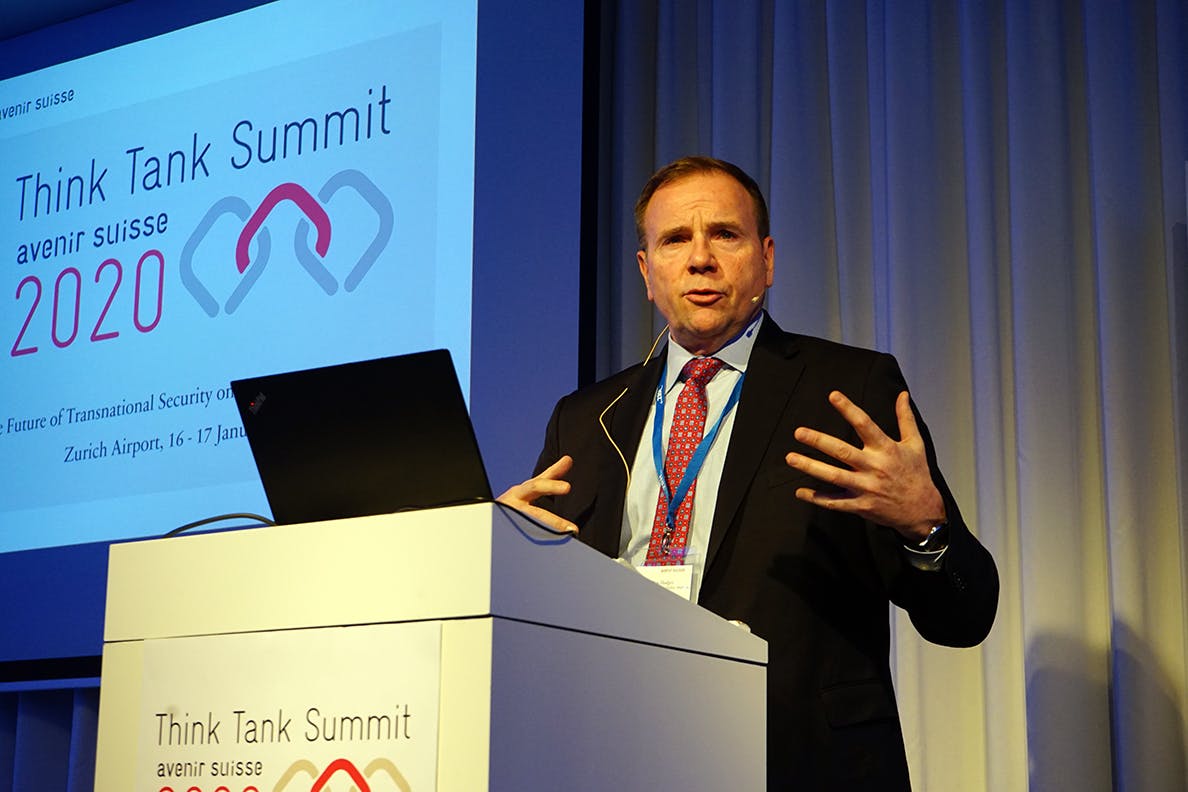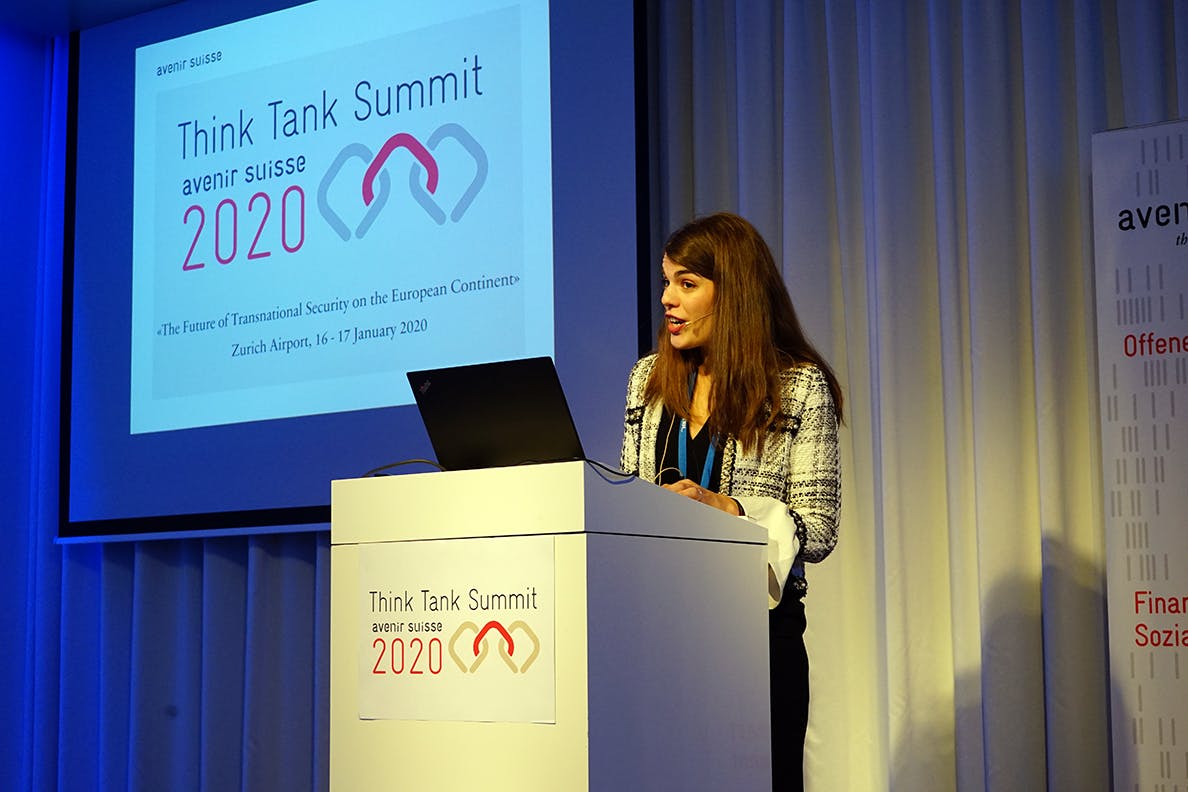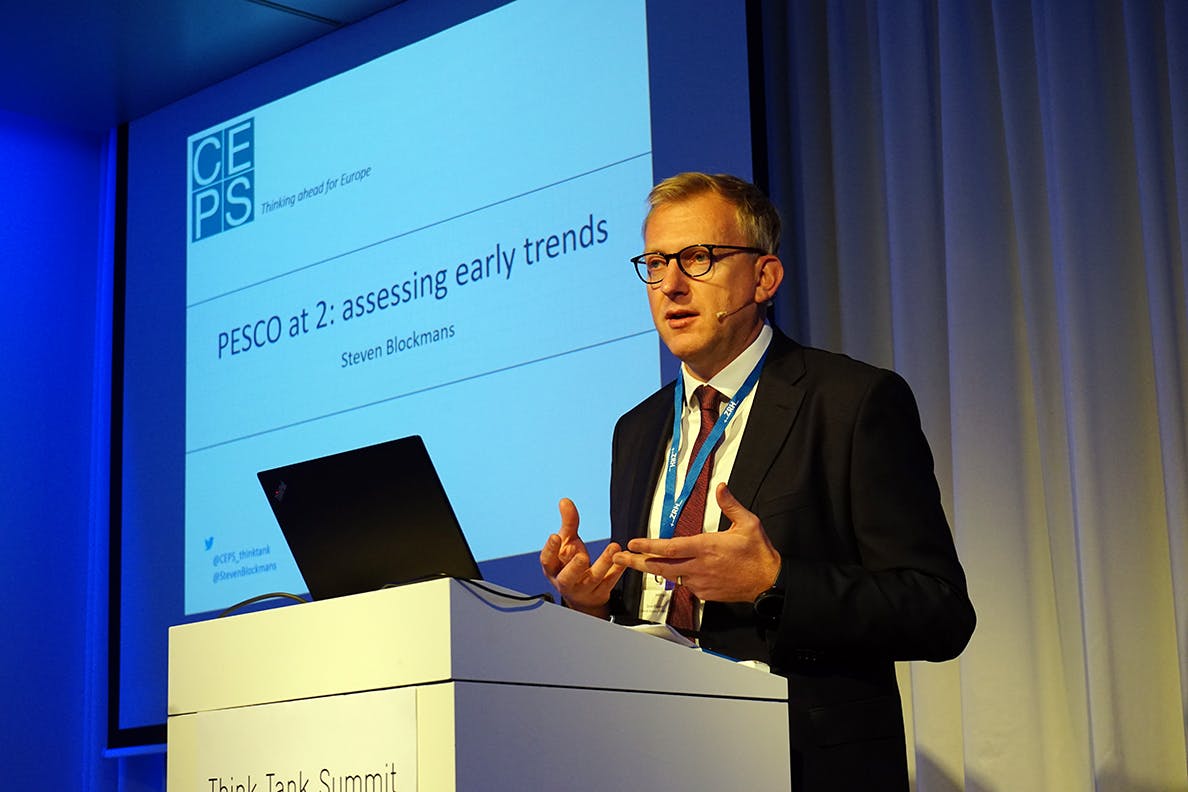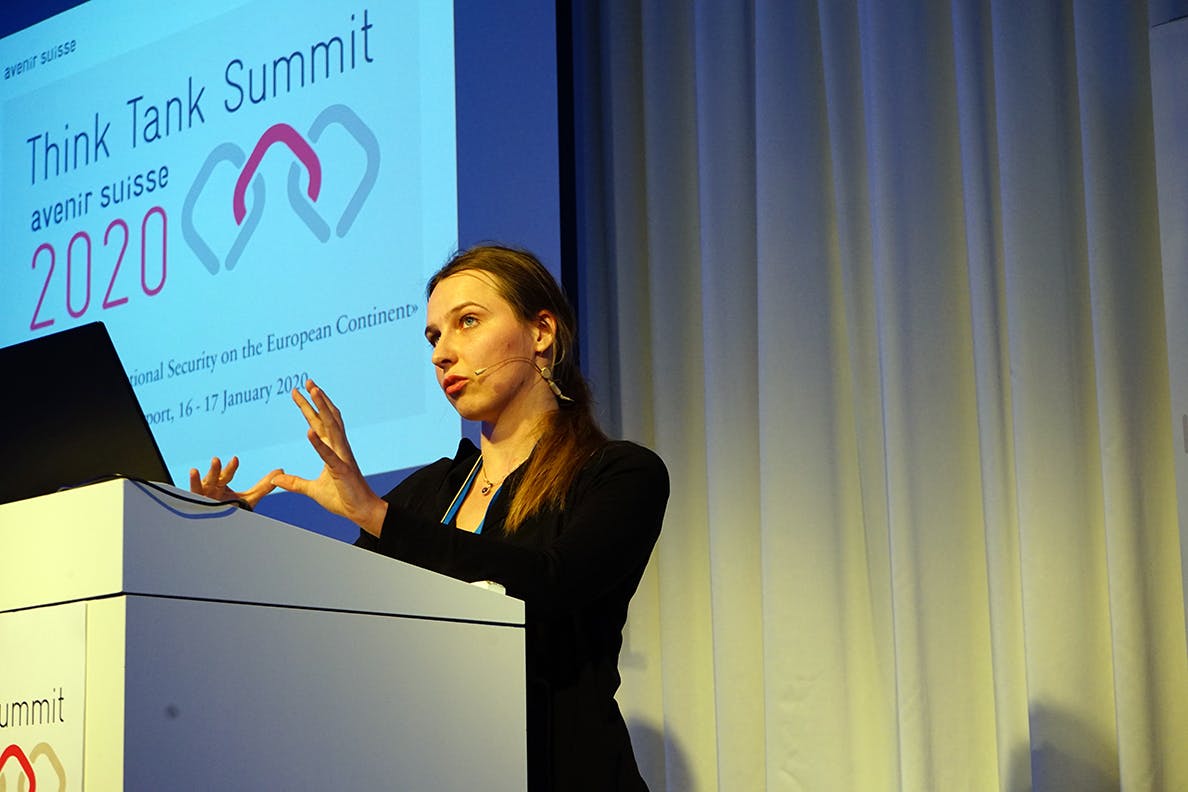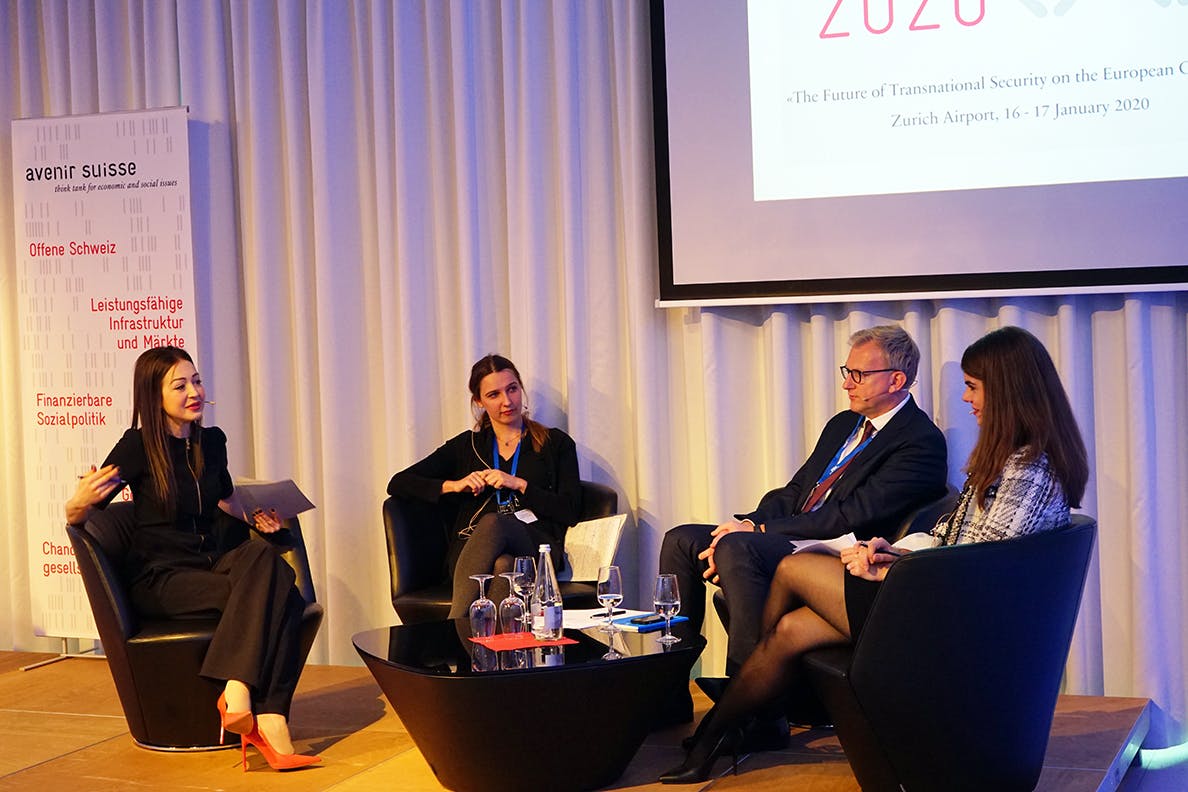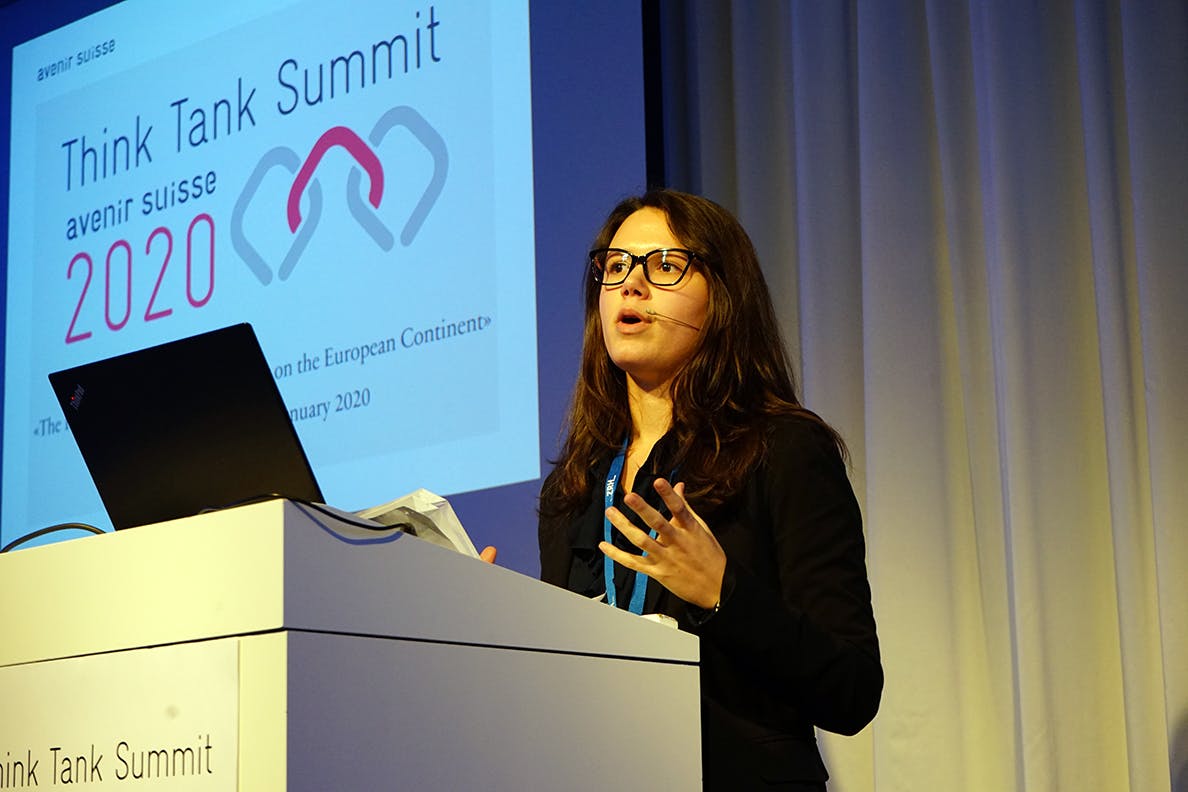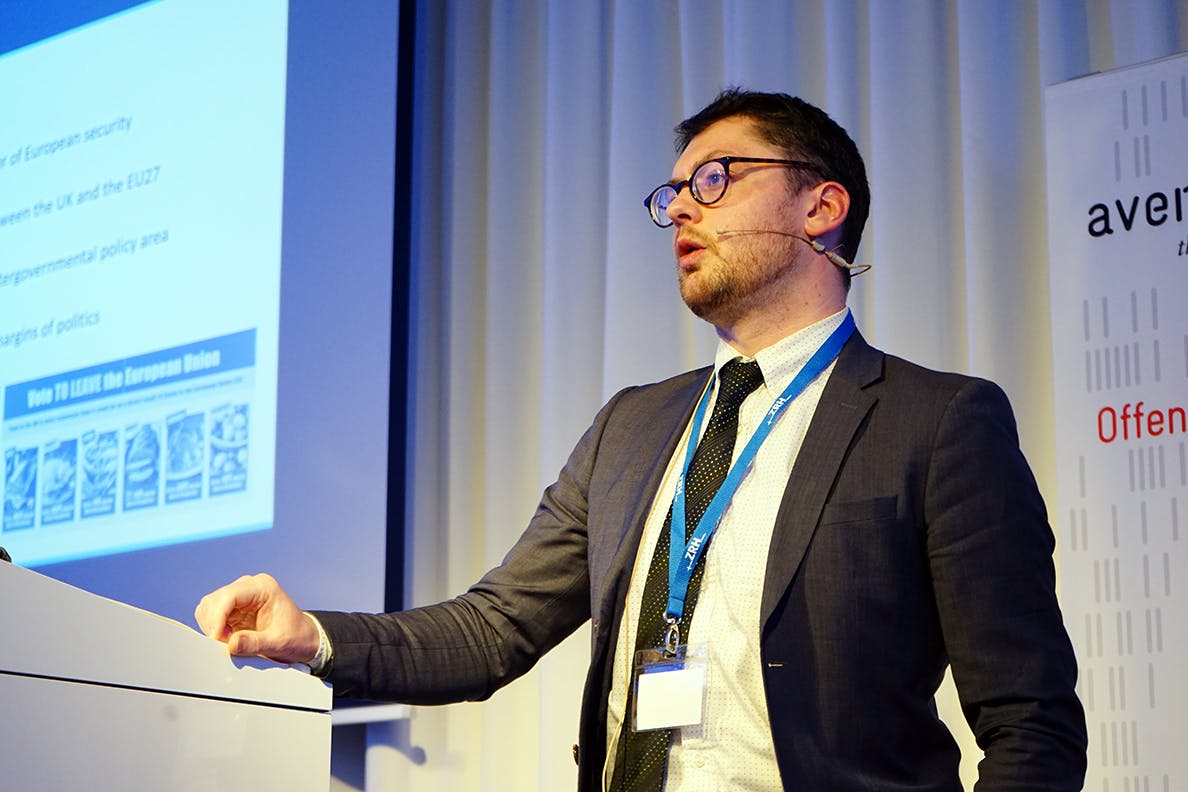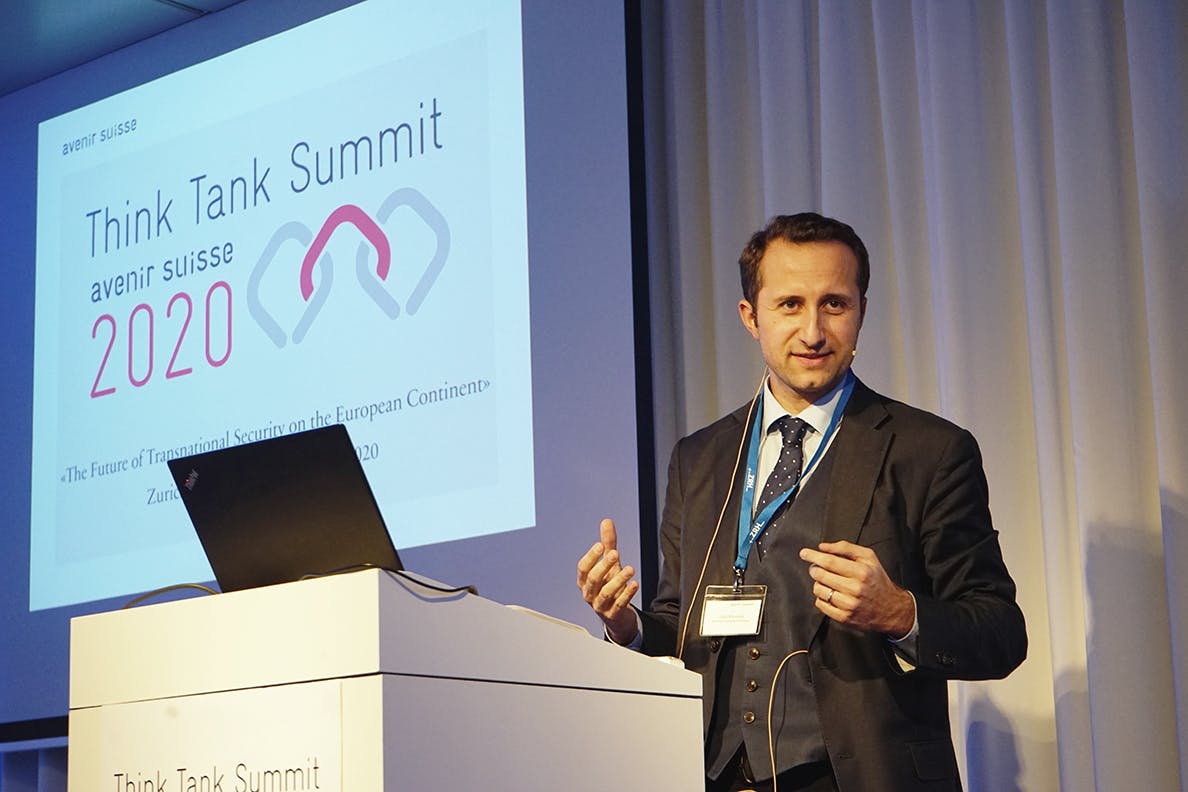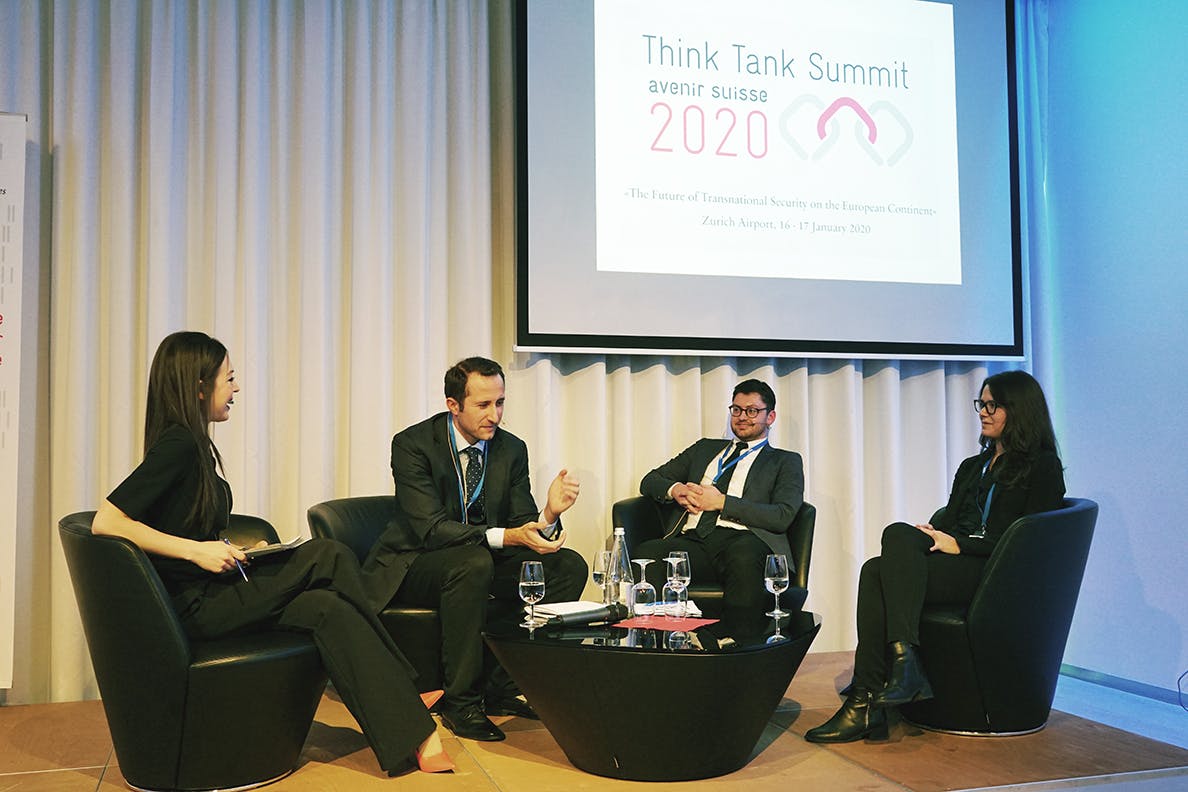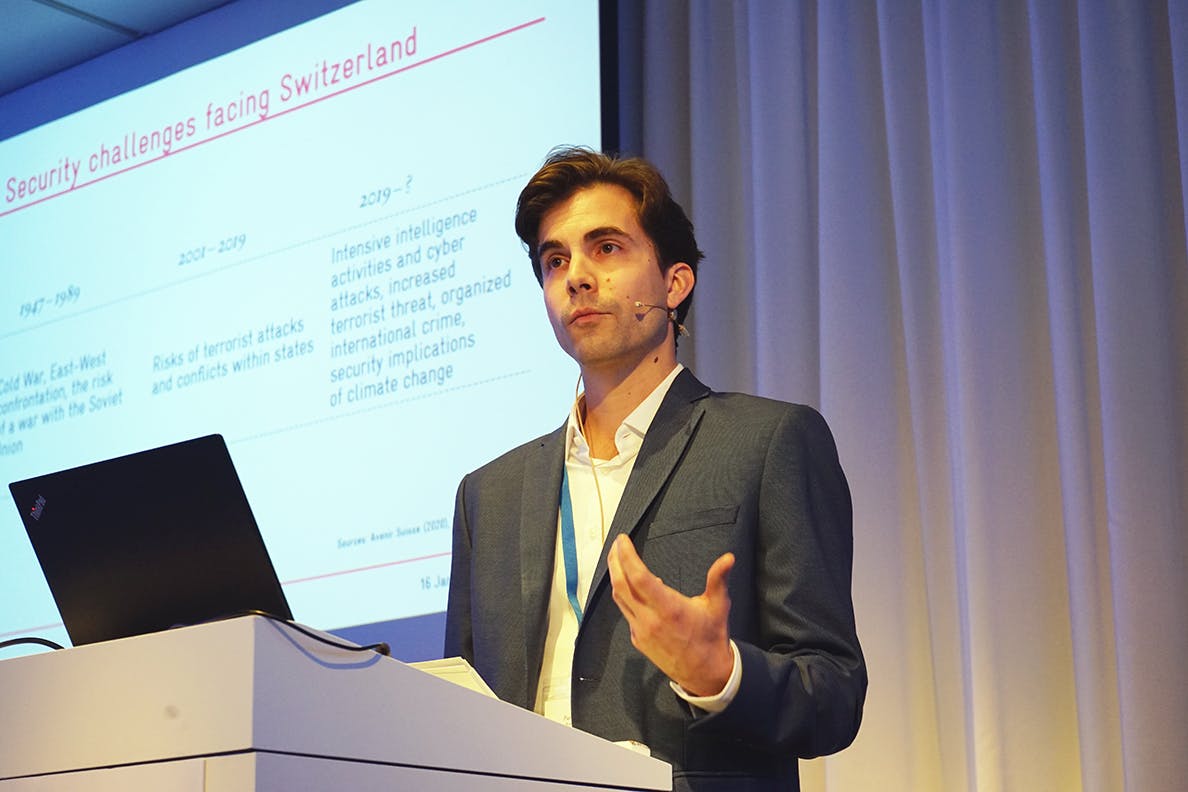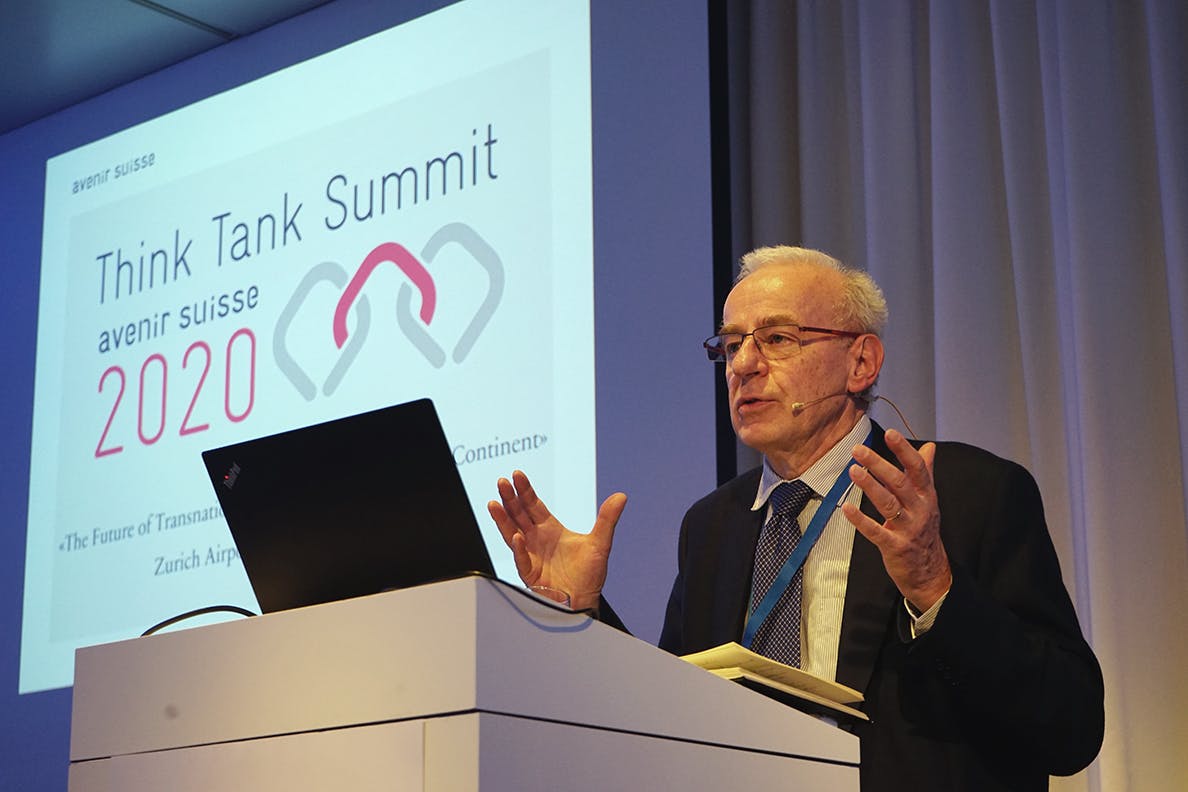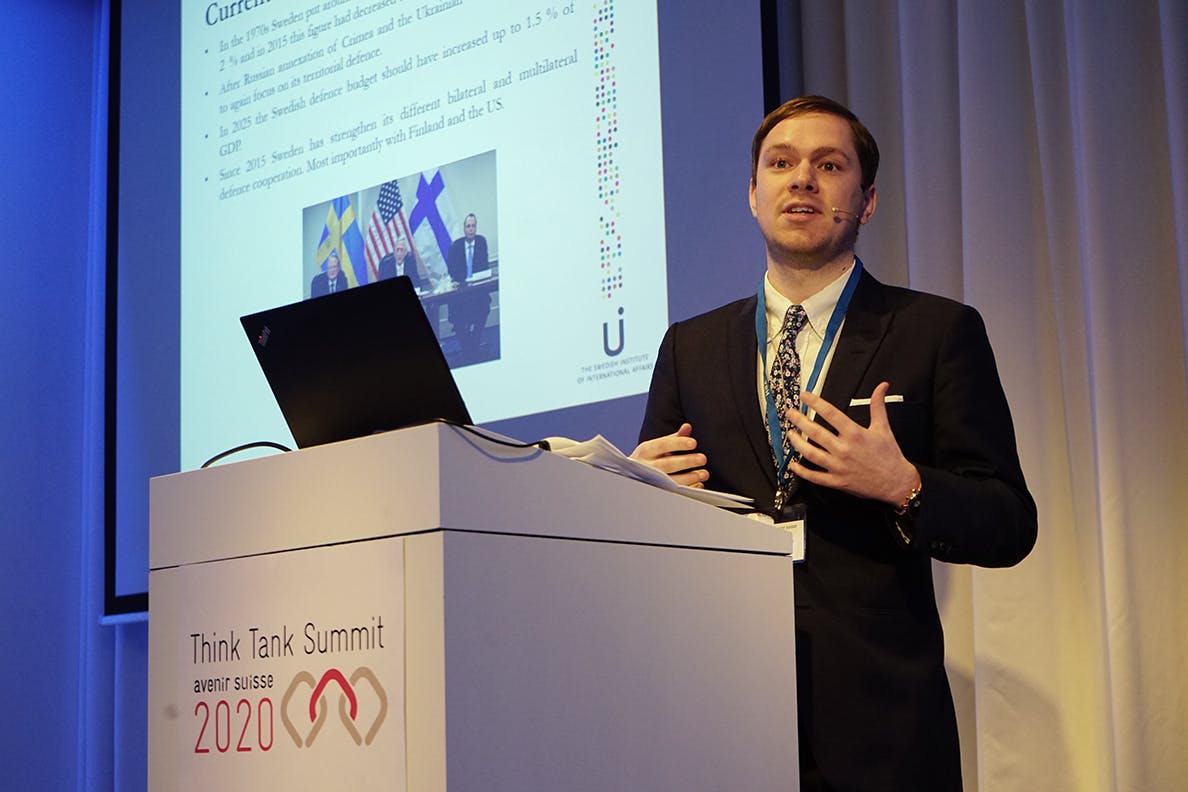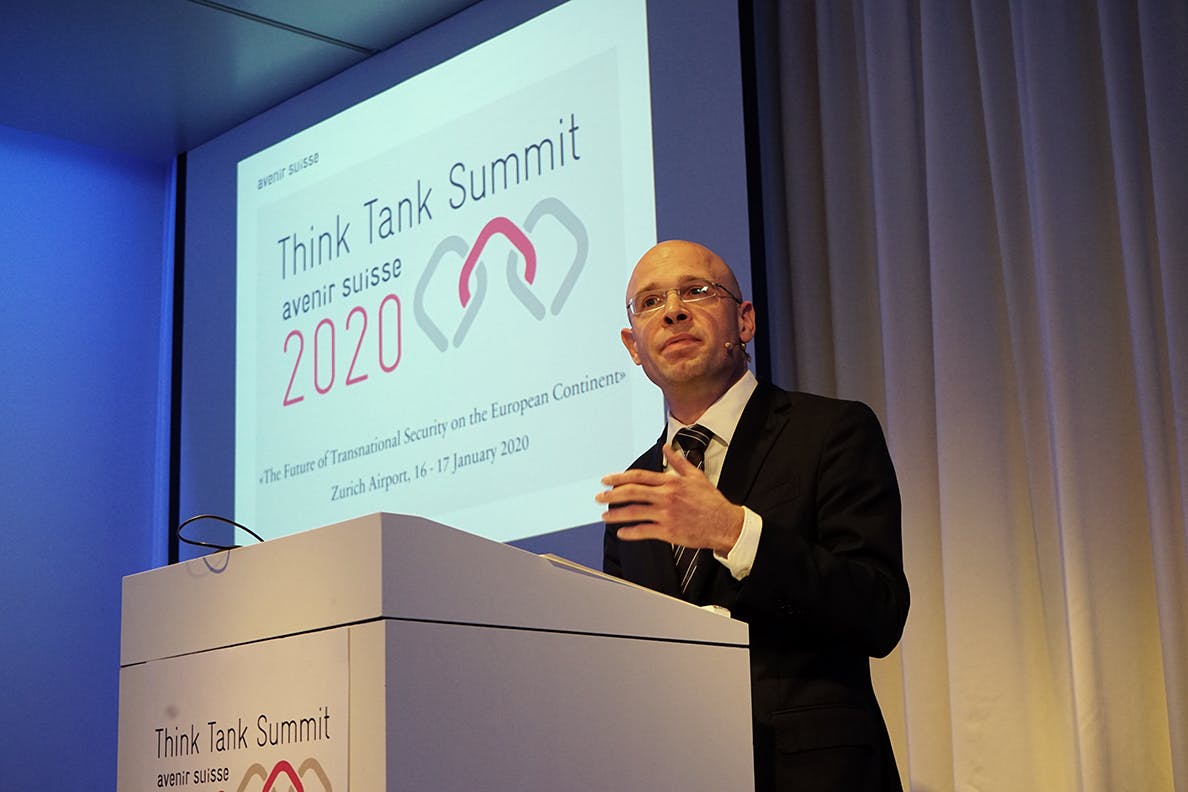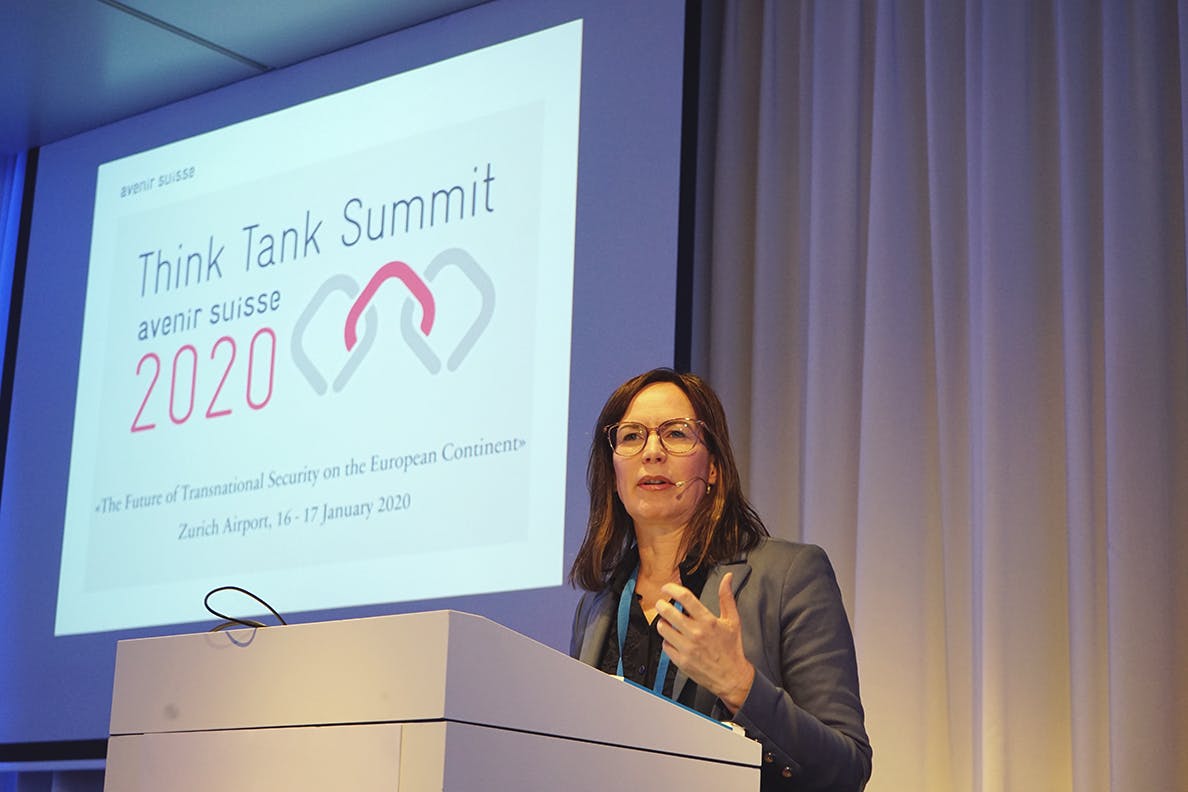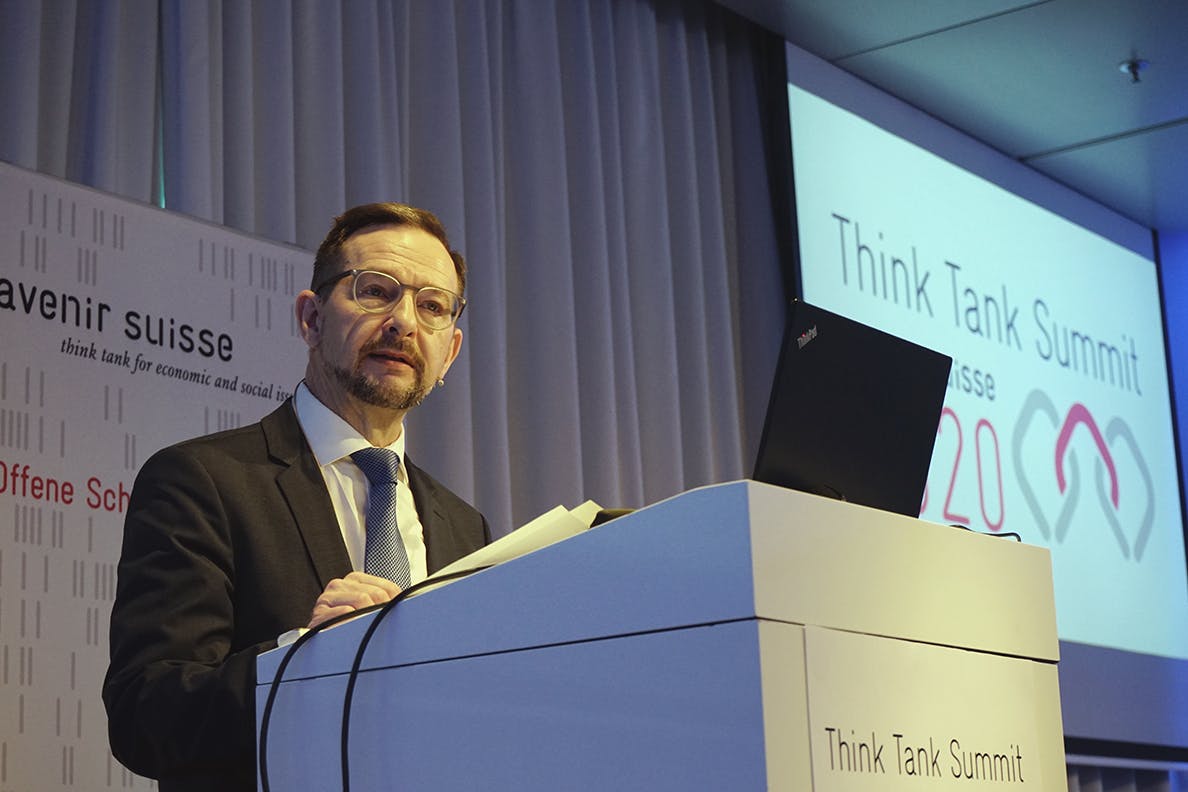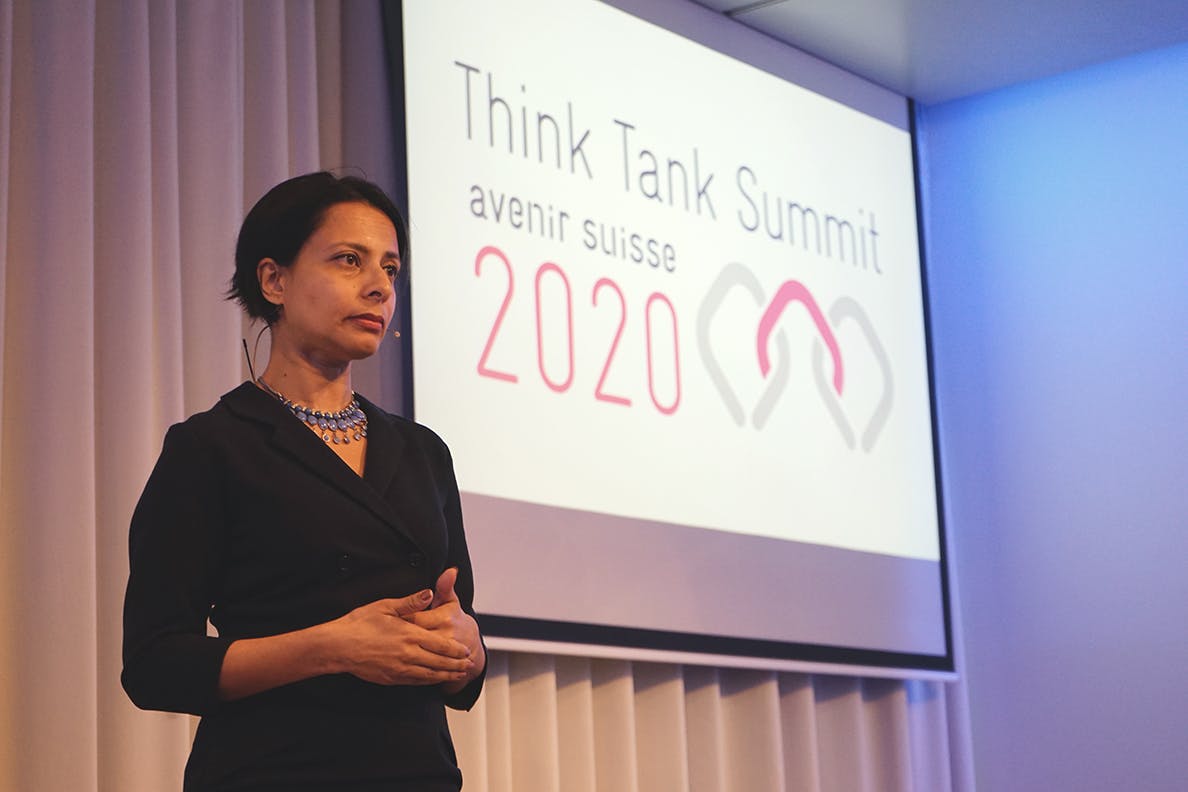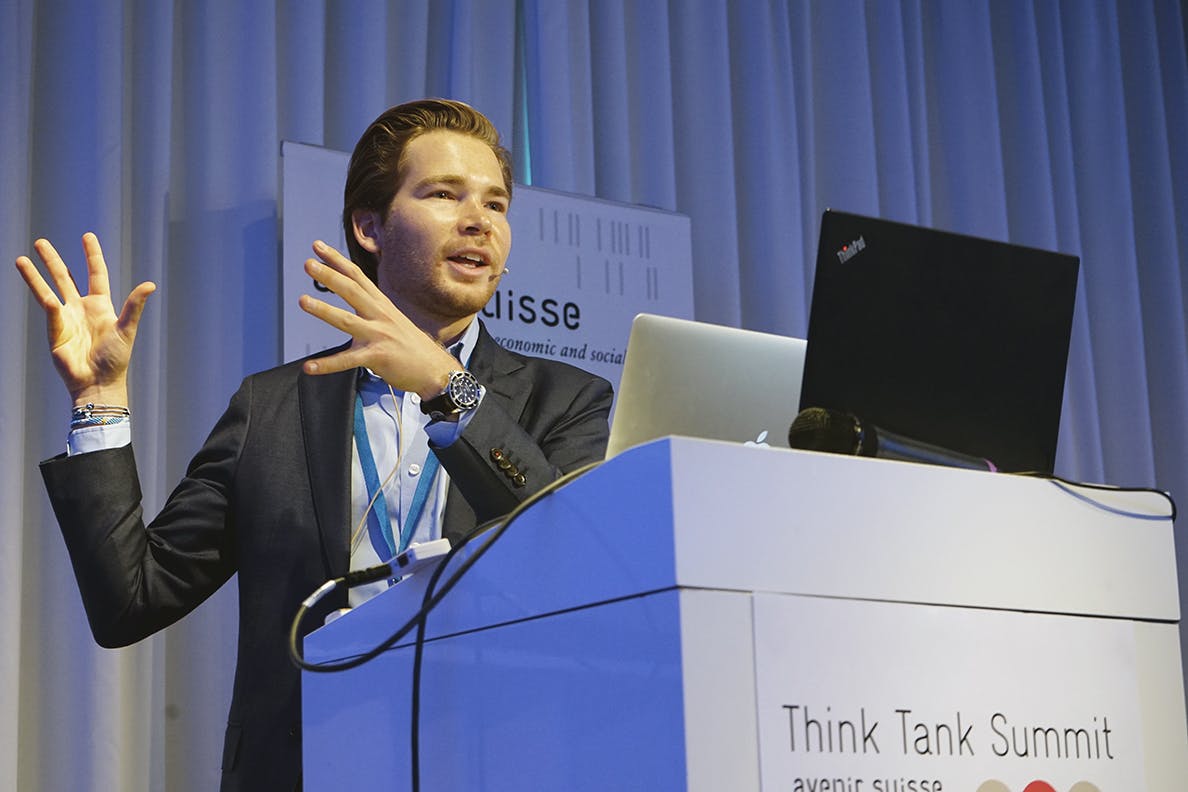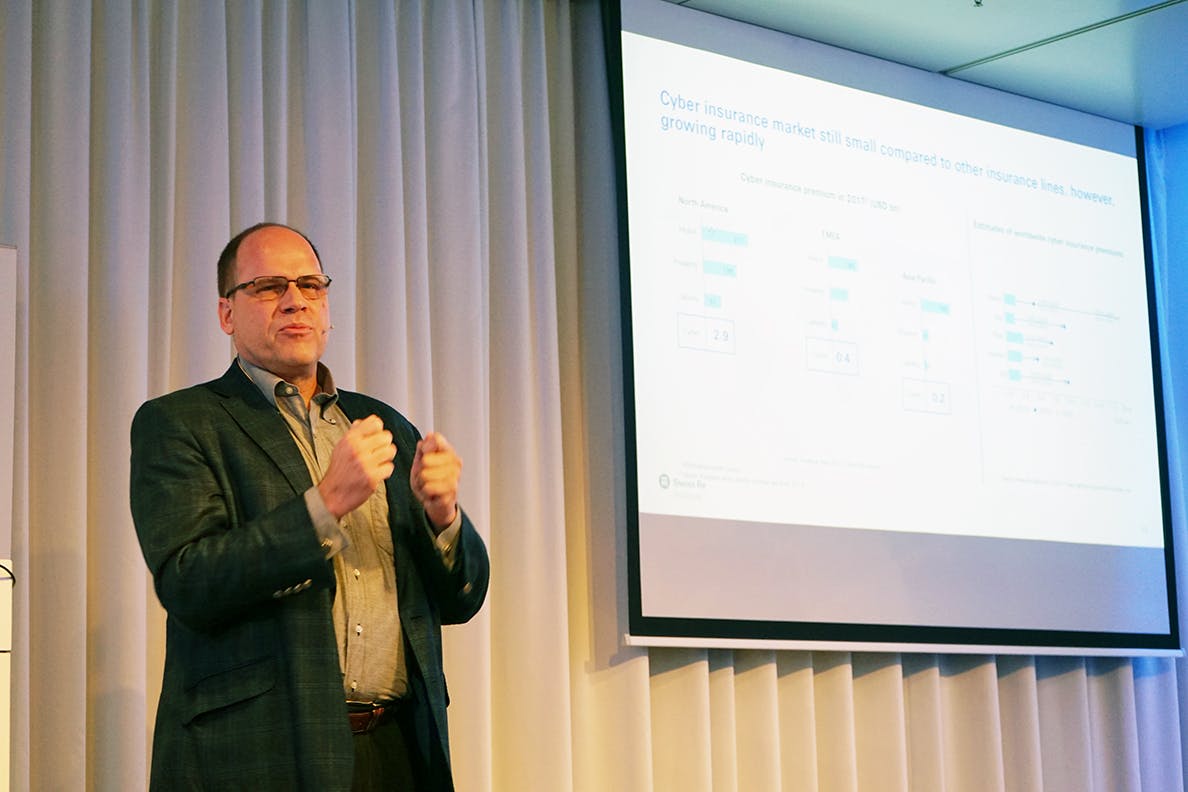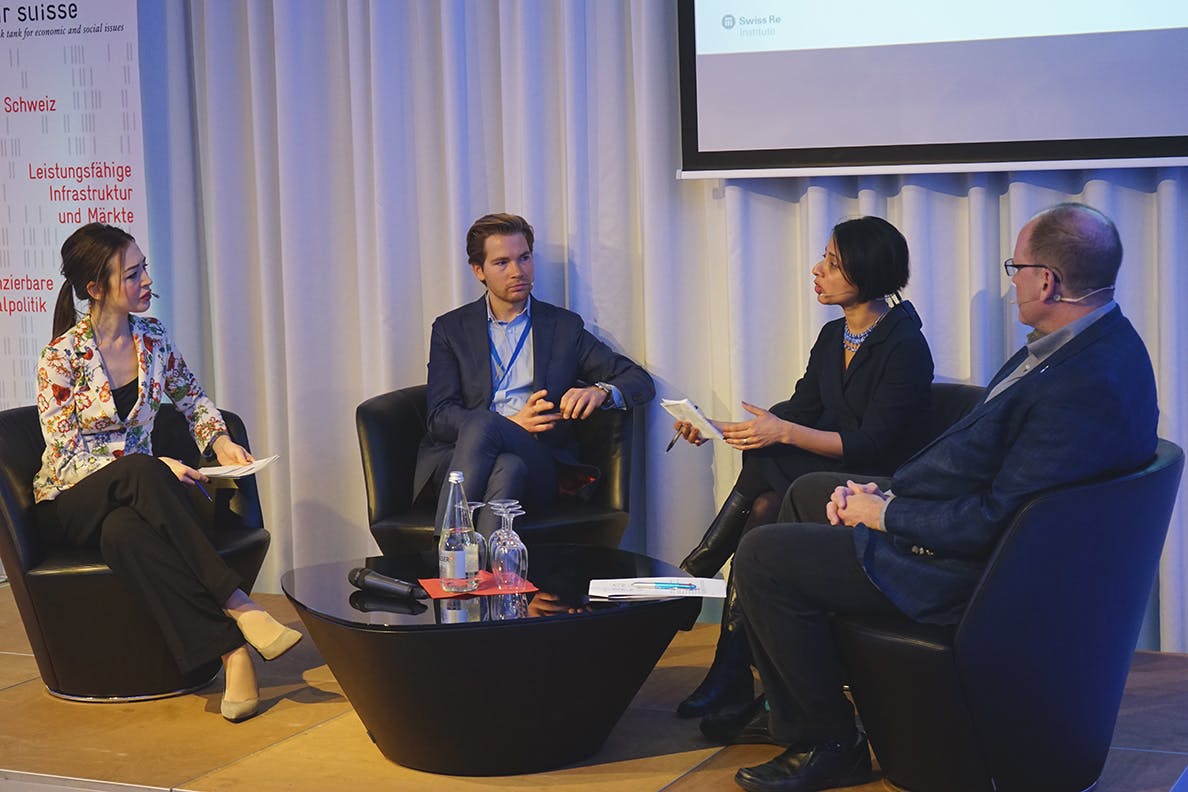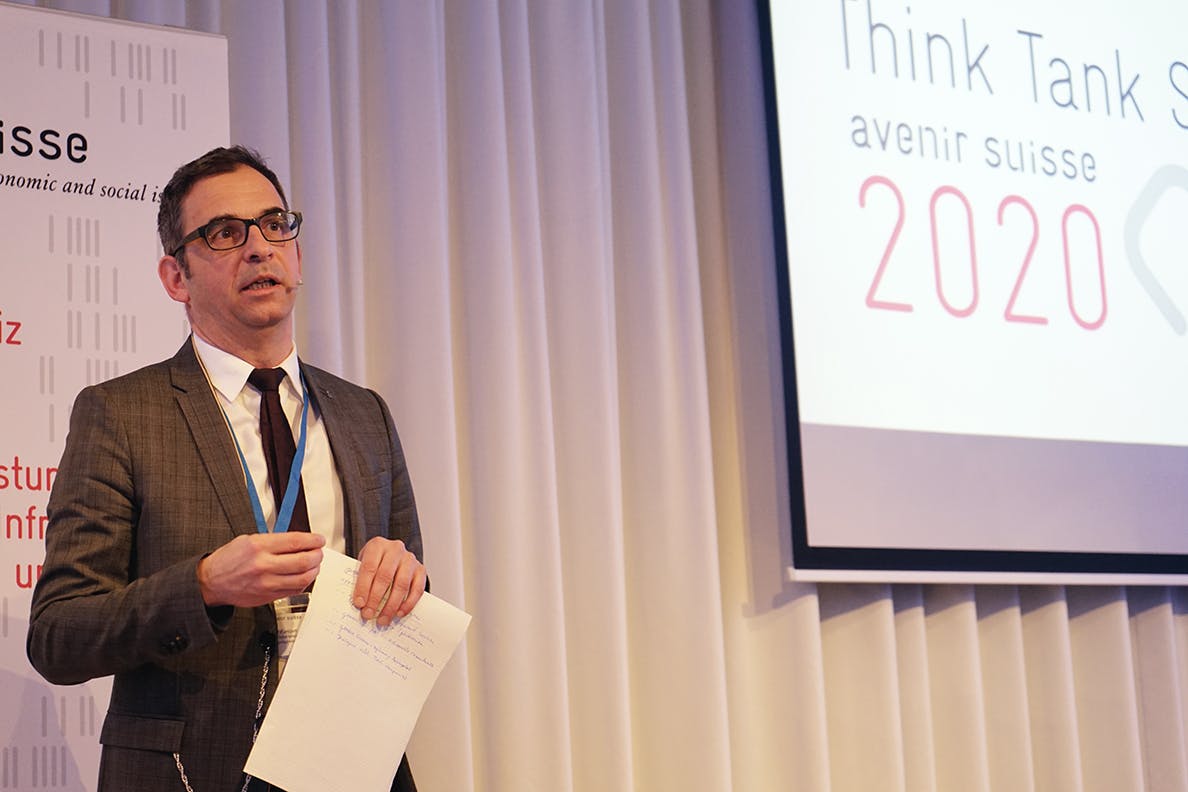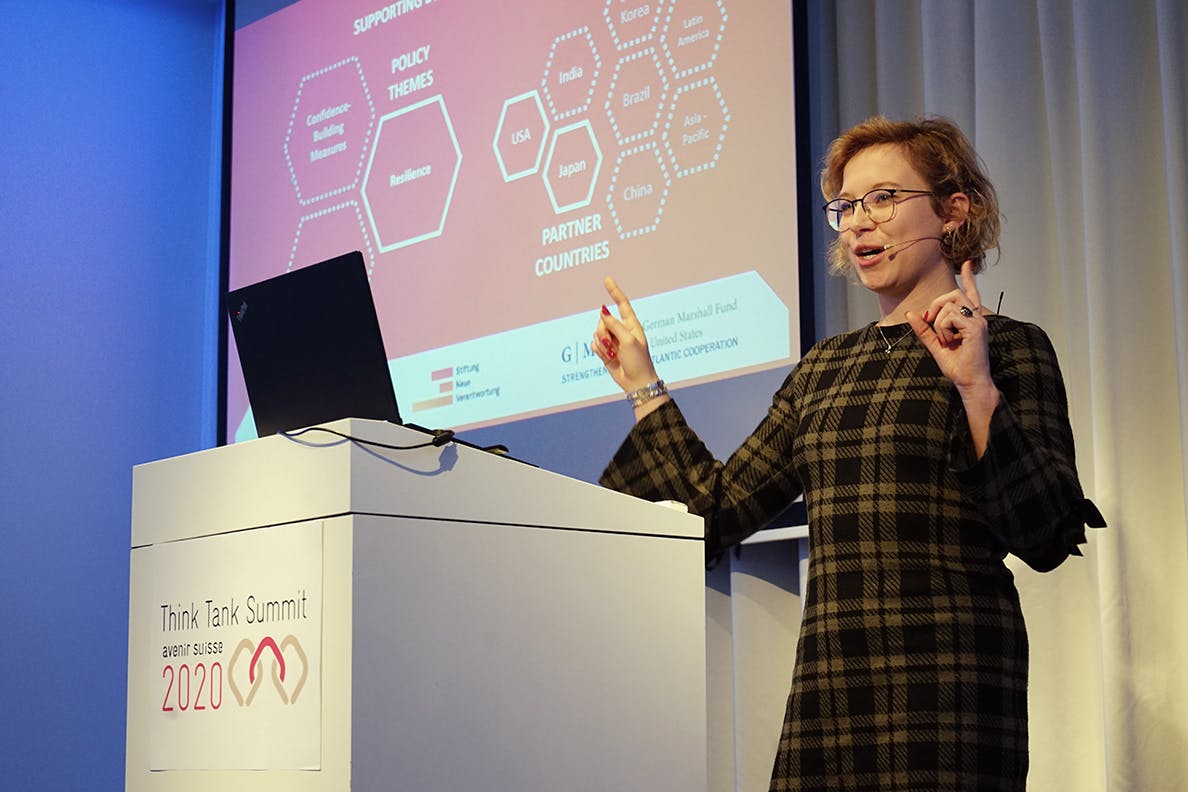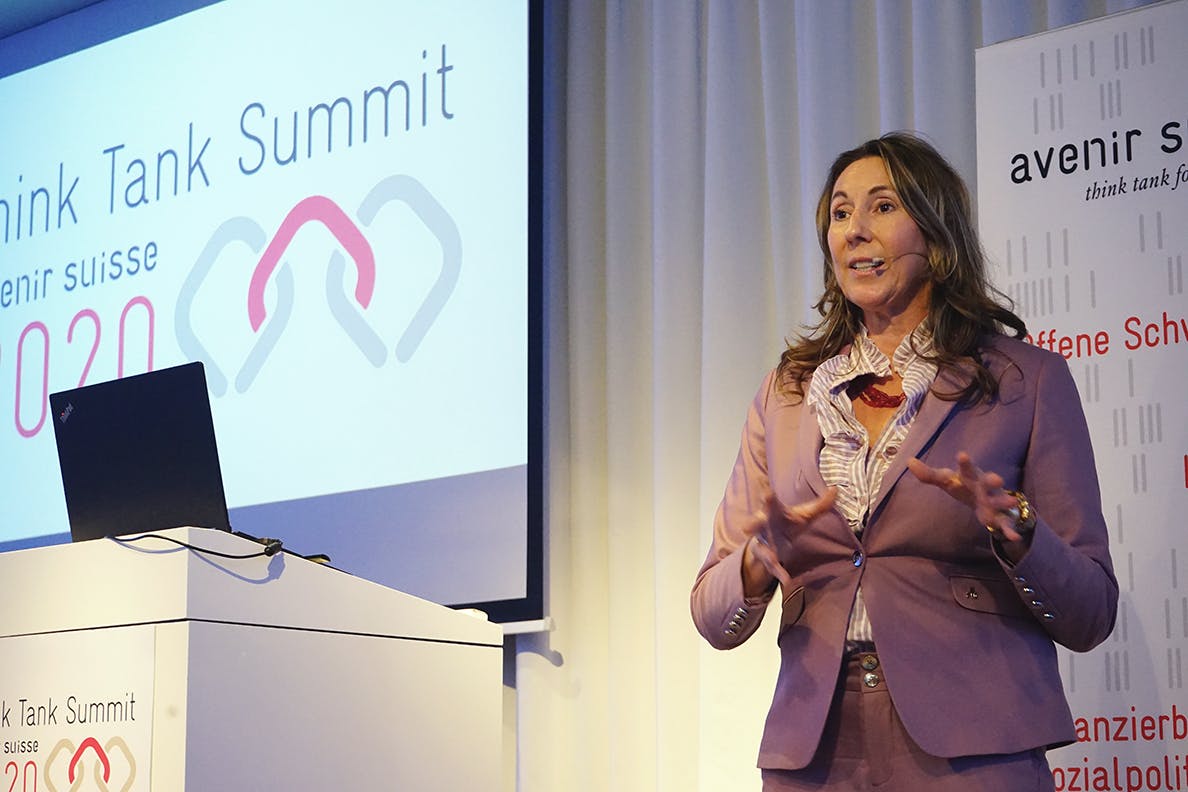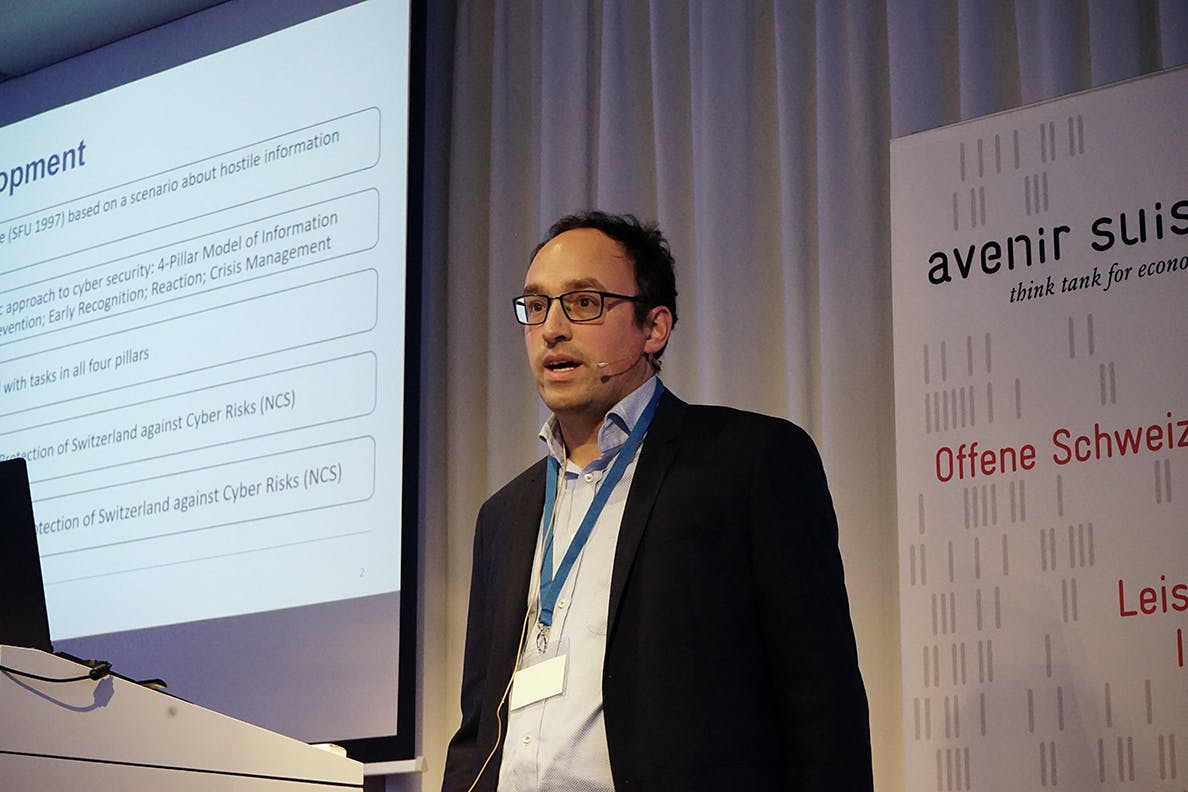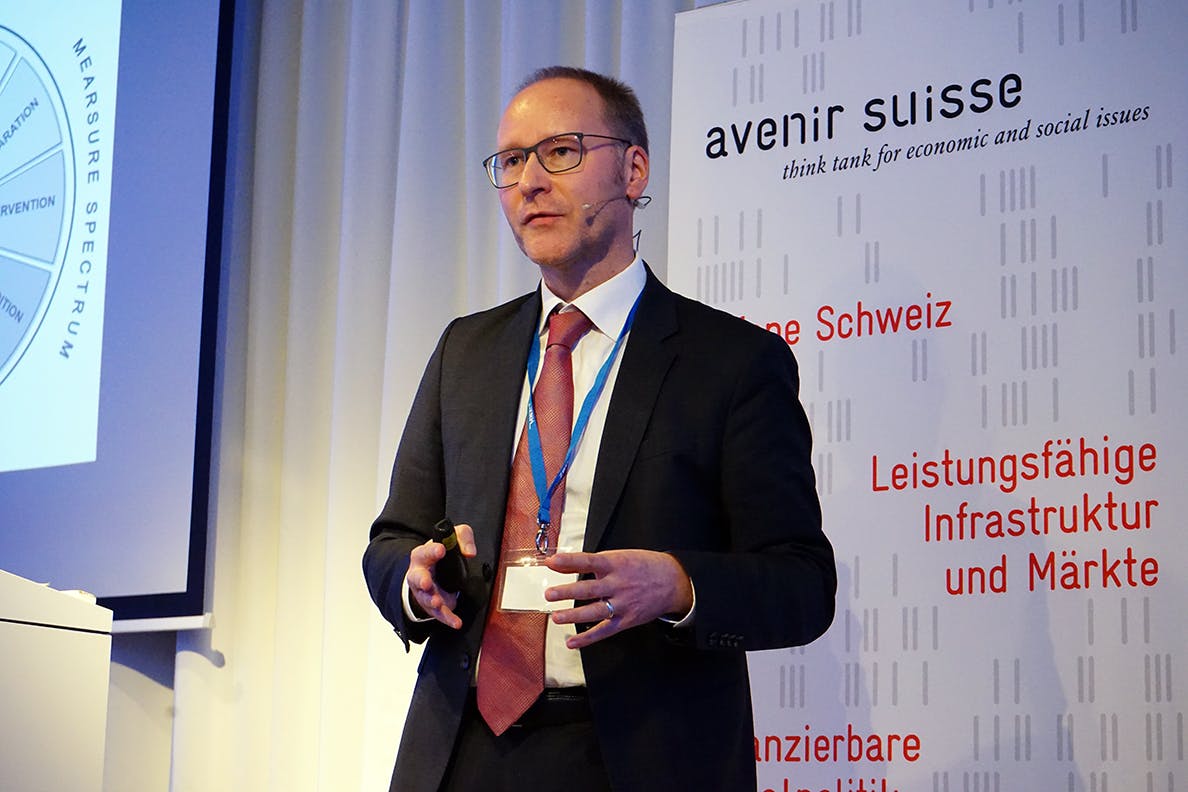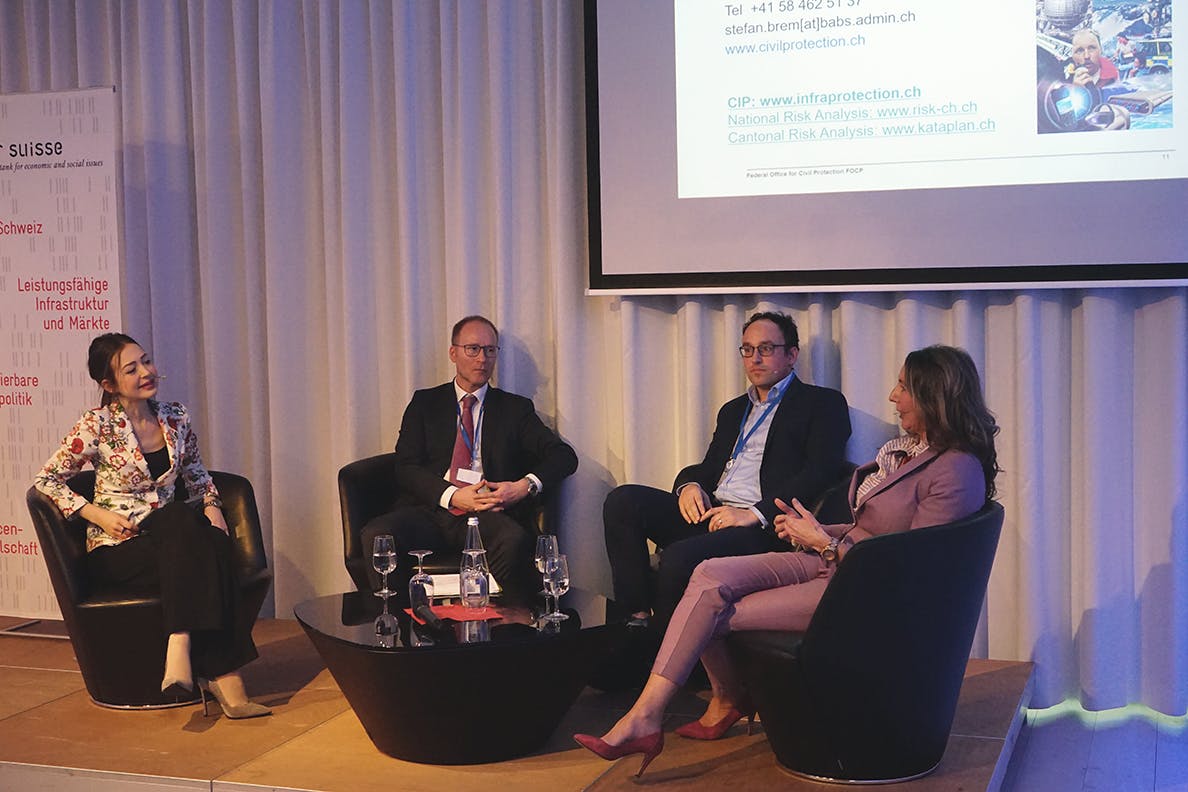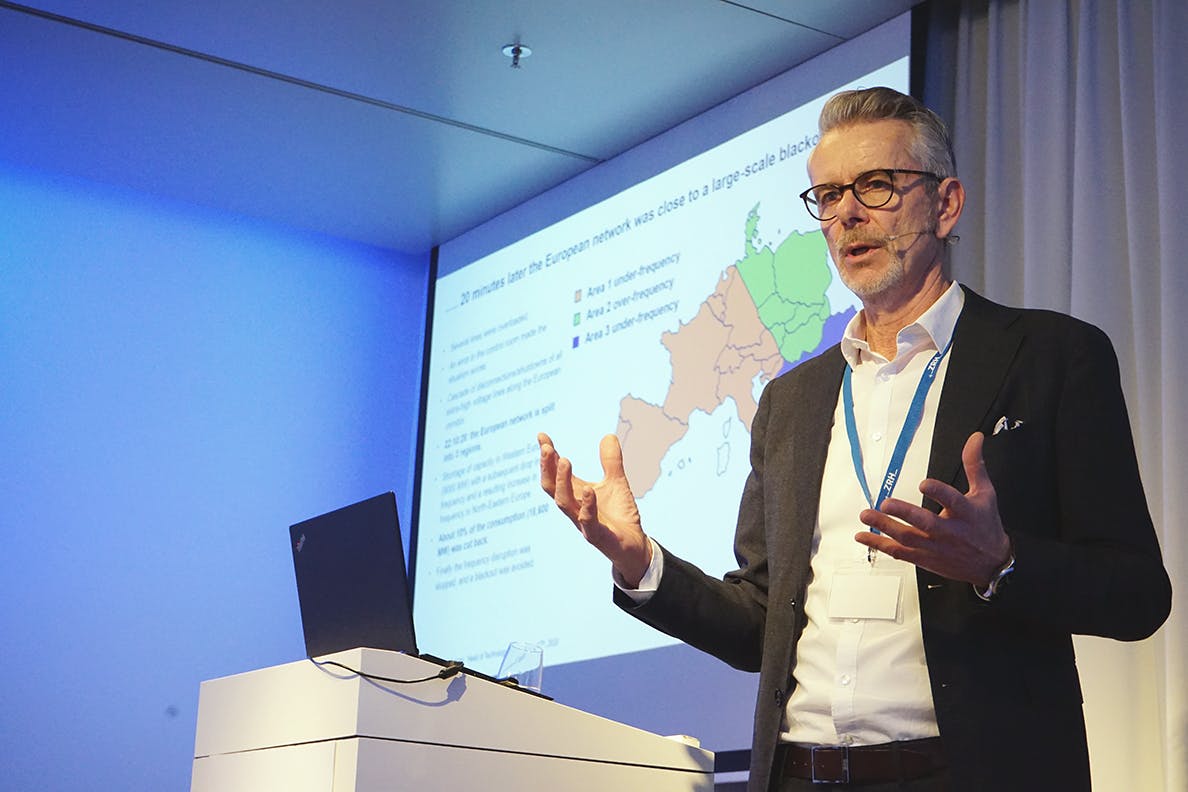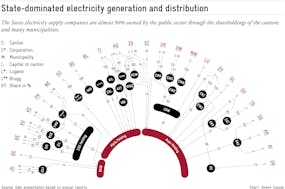What happens to security policy in Europe if the US focuses increasingly on Asia, while, at the same time, Russia and China become more dominant? What options will Switzerland have under? In his welcome speech at the Think Tank Summit 2020, Avenir Suisse Director Peter Grünenfelder pointed out the disparate new influences on national security and introduced to the two conference days.
Avenir Suisse researcher Pascal Lago, leading the conference program, interpreted the threats and outlined the importance of transnational security cooperation in Europe. Since the publication of the EU’s Global Strategy in 2016, member states have started to pursue their interests more actively, argued Spyros Economides from the London School of Economics and Political Science. This marked a fundamental change in EU security policy – even if the focus remained on border protection, especially on the eastern and southern flanks.
The USA needs partners despite – or perhaps because of – the fall of the Iron Curtain, fears in Eastern Europe have not diminished, especially not after the Ukraine crisis. NATO, however, is far from being “brain dead”, Ben Hodges (Commander of the US Army in Europe between 2014 and 2017) assured, referring to the French president’s recent provocative statement. The US has never turned its back on Europe: the number of the troops deployed there has actually increased in recent years. But 75 years after the Second World War, Germany must assume more military responsibility. The US simply does not have the capacity to ensure stability globally – it depends on its allies.
Yvonni Stefania Efstathiou (International Institute for Strategic Studies) assessed the actual efforts to promote European strategic autonomy Thanks to the PESCO (Permanent Strategic Cooperation) program, there is a plethora of initiatives. However, they are not concrete enough, Instead, NATO was often referred to. Efstathiou interprets this approach as the EU`s effort to take greater responsibility for its security, without antagonizing NATO. Her skeptical conclusion was that Europe has finally begun to develop its “Plan B,” but will still take at least a decade to reach complete strategic autonomy. Moreover, this process must be accompanied by consolidation in the defense industry.
Taking responsibility requires a definition of common interests beforehand, Steven Blockmans from the Centre for European Policy Studies argued. But PESCO partially promotes the opposite – fragmentation and silo thinking. It is vital to bring different cultures together and find interfaces in the European security policy. The danger is, however, that France might jump ahead, leaving everyone behind. That would cause Germany and Italy to lose interest, resulting in the EU defense strategy developing along the lines of that of France.
New threats from the South
Karolina Muti (Istituto Affari Internazionali) noted that transatlantic relations have traditionally always been the cornerstone of European security architecture. However, the focus of the southern European countries lies naturally in the South – particularly given the refugee crisis. She, therefore, advocated a two-way strategy: Eastern Europe’s main concern is to avoid unnecessary escalation. In the dialogue with Russia, the EU should also include member countries such as Italy, which traditionally have a moderate attitude towards Moscow. On Europe’s southern flank, NATO could make greater use of non-military means and cooperate with locally based experts on climate change and migration.
Alice Billon-Galland (Europe Programme at Chatham House) outlined the French perspective: France wants to act proactively and pragmatically, instead of just continuing to react. Considering the numerous hot spots in Europea’s sphere of influence, President Macron was particularly concerned about future developments. This concern was exacerbated by Brexit – the United Kingdom is a security policy “twin” of the Grande Nation: both countries are nuclear powers and permanent members of the UN Security Council. Billon-Galland also pleaded for more commitment from Germany.
Brexit does not make matters easier, Benjamin Martill (University of Edinburgh) acknowledged. He sees developments in opposite directions, even though both the UK and the EU officially affirmed their continued interest in “deep cooperation.” Britain will cease to be part of EU institutions and bodies after Brexit, while costs in the EU will rise. At least the compatibility between PESCO and NATO should be viewed positively.
After (so much) criticism of Germany’s role Olaf Wientzek from the Konrad Adenauer Stiftung attempted to restore Berlin’s honor: A certain sluggishness in decision-making cannot be denied, because parliament often acts as a brake. The EU’s Common Security and Defense Policy (CSDP) enjoys greater support in parliament than NATO – especially among Greens. Although critics accuse Germany of being in a “comfort zone” with CSDP, it remains true that the country has been increasingly involved in “hard security” since 2014 and is not afraid of “getting its hands dirty.”
The role of neutrals
So, where does that leave neutral countries, such as Switzerland and Austria? For Pascal Lago it is undisputed that peacekeeping operations are compatible with neutrality. Moreover, many “new” threats are not of a military nature and can only solved through international cooperation – for instance those in the cyber and terror sectors.
Heinz Gärtner (International Institute for Peace and University of Vienna) believes that a completely neutral position in ideological, economic and political terms is hardly possible. Austria has had good experience with the concept of “active” neutrality, for instance as host and location for international organizations and in peace missions such as in Kosovo, where the country provides the largest contingent of non-NATO troops.
The situation in Sweden is somewhat different, as Calle Håkansson from the Swedish Institute of International Affairs explained. As late as 1970, defense spending had been around 3 percent% of GDP before, later, after a steady decline, dropping to 1 percent%. By 2025, the Swedish Government plans to gradually increase spending to 1.5 percent% again, in response to a growing threat from Russia. Sweden’s commitment to PESCO is lukewarm, but there are numerous cooperations and alliances with the UK, France and Germany due to Sweden’s relatively important arms industry.
Baschi Dürr, Member of the Executive Board of the Conference of Municipal Security Directors and President of the Police Concordat Northwest Switzerland, then described the security policy situation in Switzerland, which, in his view, had done well so far. However, he noted crime was not stopping at national borders, explaining why international cooperation mechanisms, such as the EU’s Schengen system,” are of such outstanding importance.
Ambassador Pälvi Pulli, Head of Security Policy at the DDPS, concluded the first day of the summit with a keynote speech on “The Odd Animal in the Zoo: Swiss Security Policy.” Switzerland is privileged by its geographical location. But it also has to adapt to changing threats. Neutrality does not equal neutralism, nor does the principle of neutrality prevent the country from being pulled into conflicts. Switzerland has great economic and diplomatic weight. Its political system with decentralized decision-making, the principle of rotation in the national government and direct democracy, even enables Swiss citizens to vote on the procurement of fighter planes – which prompted Ben Hodges to ask whether it was really conceivable that Switzerland could risk its air defense by voting. – The answer was, in short: yes.
Security in Cyberspace
After the first day focused on military issues, the summit turned to more virtual security issues. The second day’s opening keynote address was delivered by OSCE Secretary General Thomas Greminger. As an aggravating megatrend in the current security landscape, he addressed the erosion of multilateralism in favor of bilateralism, which many states use to assert their interests. International negotiations would be made more difficult by an increasingly “public diplomacy.” Against this background, the OSCE offered a protected framework for discussions and created confidence. The aim was to reduce risks and promote consensus and stability.
But what happens if, despite all precautions, one were victim of a cyberattack? Ria Thomas (Brunswick Group) gave a drastic description of the difficult situation of attacked companies: Not only would they have to deal with the often existential damage, but they would also have to tackle legal, financial, technical and reputational issues. Since malware does not stop at borders, victims are often confronted with contradictory regulations. Although combating malware is a notoriously difficult, the public rarely sees affected companies as victims, but often brand them as perpetrators which have neglected their duty of care.
As Hippolyte Fouque of Darktrace explained, artificial intelligence offers help against cyberattacks. Clever algorithms can detect traces in the darkness of the electronic cosmos that are invisible to system administrators, and fend off attackers before they cause damage. Artificial intelligence finds malware and is able to “vaccinate” other computers against the attack. The problem, however, is that attackers are now also using sophisticated software.
War or crime?
Jeffrey Bohn (Swiss Re Institute) confirmed this. He stressed the importance of increasing investment in cyber security. The Internet, he said, is a central infrastructure in finance, mobility and healthcare. Although cyber risks currently account for only 2 percent of all reinsurance premiums, they are expected to become just as important as catastrophe premiums. A still unsolved problem for reinsurers is the accumulation of risks in the event of a pandemic attack. The question of excluding risks from war is also unclear: it is often not clear whether an attack is a warlike or a criminal act.
In cyberspace there is also no neutrality in the classical sense, emphasized Jon Fanzun of the Federal Department of Foreign Affairs. Despite Switzerland’s small size, the country plays a major role in cyberspace – not only because of its economic importance, but also because many international institutions have their headquarters there.
Julia Schuetze (Stiftung Neue Verantwortung) was skeptical about the EU’s ability to act in the event of a cyberattack. Many countries still lack a coherent strategy in this new field of national defense, which makes it even more difficult to act together. Although there are some initiatives within PESCO, the main burden of combating cyberattacks remains with the private sector.
Terminate rear entrances
Using two captivating case studies, Stefanie Frey (Deutor Cyber Security Solutions) demonstrated how hackers often abuse poorly protected SMEs as a “back door” to larger networks. In many security systems, supposedly harmless partners are often neglected. So, even seemingly harmless partner companies must be regarded as “critical infrastructure.” Crime mapping is needed for every attack to assess collateral damage.
The risks to which critical infrastructure is exposed and what the state is doing to protect it were explained by Manuel Suter from the Federal IT Steering Committee (FSUIT), which is responsible for implementing the information and communication technology strategy in the Swiss federal administration. It generates knowledge and skills, is responsible for prevention and manages cyberattacks.
In such cases, Stefan Brem from the Federal Office for Civil Protection considers a two-part approach to be appropriate: firstly, clear instructions and tips for companies in the event of a cyberattack, and secondly an analysis of the risks by sector. After all, there have been few infrastructure failures in Europe to date for this reason.
The concluding keynote speech was given by Rainer Mühlberger, Head of Technology at the national grid company Swissgrid. He works with the “largest machine in the world” – and this can be taken literally: The European electricity grid physically extends across the entire subcontinent. Since electrons do not stop at national borders, international cooperation is essential. This makes it all the more problematic that Switzerland still has to manage without an electricity agreement with the EU. In this context, he pointed out that the electricity supply in Europe is sometimes hanging by a thread – or rather on a single wire. And this at a time when the system’s IT is facing a growing number of cyberattacks.
Conference participants might have liked to take home a more optimistic view of the future. As a word of comfort, Pascal Lago dismissed them from the summit with the conciliatory insight that the will to cooperate on the European continent is not only sorely needed, but also clearly felt by all stakeholders.
Publication “The Future of Security Policy in Europe” (in English).

